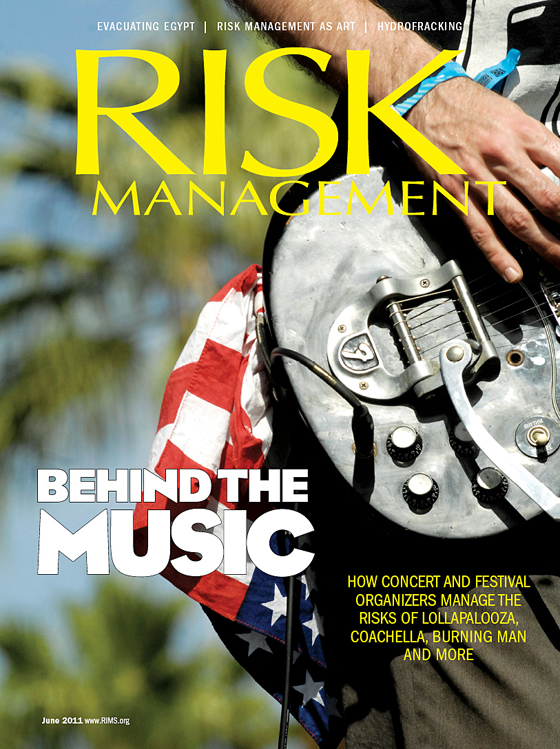Lately, it seems as if almost every week there is a protest of some kind at some point in the world. From hundreds demonstrating against nuclear power in Madrid to protests and travel disruptions in Delhi to the deadly anti-government coup in Cairo, there is almost no corner of the world that is immune from these mass scenes of chaos, anger and extreme violence.
These protests are particularly dangerous to unsuspecting business travelers from the United States, who find themselves caught in the middle of such unrest. Business travelers going overseas, particularly to developing nations where there may be anger and resentment toward Americans, need to be knowledgeable and prepared in advance of any trip.
As a security or risk manager, you need to arm your employees with vital information and urge them to be cautious at all times. Here are some tips that you can offer employees, wherever their jobs, projects or assignments may take them:
PLAN AHEAD; ANTICIPATE A PROTEST
Prior to departure, research current news about the destination location for controversial events such as a political race or impending decision on a high-profile court case. These events are often the springboard for a protest or riot, especially in developing nations undergoing a great deal of change.
For instance, recent events include a protest that led to travel disruptions in Delhi, India, with police firing tear gas on the crowd or a protest that also became violent in Manama, Bahrain. However, no area is off-limits. One recent example was a protest outside the Libyan Embassy in Ottawa, Canada, where two were injured. Almost any kind of protest can happen anywhere and turn violent and dangerous almost instantly.
The timing and location of public protests tend to be known in advance. If travelers do their homework prior to departure, they can avoid the area or neighborhood where the protest is happening. For instance, if the hotel they plan to stay in is located within a few blocks of the protest, they can cancel that reservation and opt to stay at a hotel further away from the event. Also, if they have business meetings at restaurants or offices around the protest area, they should consider moving the meeting to another part of the city.
If a protest is being planned, travelers should understand the nature of the riot and the attitude toward Americans so they can assess the situation’s real danger. A teachers’ protest in Wisconsin is not the same as a riot in a Third World nation that is hostile to Americans. If travelers look through the U.S. Department of State’s website (www.state.gov), they can obtain more details on particular governments and regions of the world prior to their trips.
ADOPT A “LAY LOW” MENTALITY
If an unexpected riot erupts overseas, travelers need to go into stealth mode. They should find a safe haven in the area, such as a restaurant or hotel and remain as far away from the main entrance as possible.
The main entrances are most likely to be hit by bombs, bullets, or other weapons if the situation turns violent. They need to take off glasses, hats or anything else that identifies them in any way. Even though they may have expensive phones or cameras with them, those items need to be either hidden or simply discarded. Photographs of riots could be confiscated and used against innocent bystanders.
Travelers should remain neutral and avoid sharing their opinion of the situation.
If a rioter begins talking to them and seeks their opinion, they should simply say they are unfamiliar with the issue. They don’t want to appear indifferent or uncaring, as that may elicit a violent response against them from an already agitated rioter.
If possible, travelers should go back to their hotels and simply remain in their rooms as much as possible during a protest.
They should contact their corporate travel assistance provider as soon as possible, to assist them in a safe removal from the situation.
STAY AWAY FROM PUBLIC TRANSPORTATION
If there is a protest, all forms of transportation—such as buses, trains, subways, and taxis—become potential attack targets and should be avoided. Even being in a rental car is dangerous. Also, traffic is likely to come to a halt and travelers could find themselves stuck in a terrible traffic jam. If they must travel, it should be done by foot.
Local airline service is often disrupted in these situations, and travelers may need to access other area airports in order to leave an impacted area. Their ultimate goal should be to leave the area where the protests are, even if it means going to a city where they weren’t planning to do business.
Bottom line: your employees’ safety and security in these kinds of explosive situations are more important than the purpose of a business trip.



